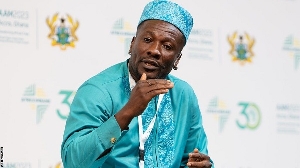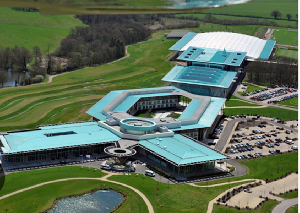The Deutsche Gesellschaft für Internationale Zusammenarbeit (GIZ) will soon provide support including the topping up of salaries of returning and diaspora experts to enable them to support the growth of their native countries with skills and knowledge.
The experts would either gain financial support including start-up capital, equipment support, technical advice and placement or networking support to establish either their businesses or support the progress of another organization.
The returning experts are migrants who travelled to enhance their knowledge and skills in Germany in varied fields and returned to their home countries to utilize the skills for the good of their countries.
The diaspora experts on the other hand are trained experts with a migration background who wish to support their country of origin by putting their expertise to good use as volunteers. They usually pass on knowledge and skills through short-term assignments with development projects involving local organisations.
The support for experts was through the GIZ’s Integrated Expert Placement Offer introduced as part of its Programme Migration & Diaspora (PMD).
Mrs Abena Owusua Amponsah-Bio, the PMD Ghana Senior National Coordinator, said migration was a global reality with a variety of different manifestations, opportunities and challenges.
She said this at a Multi-Stakeholder Dialogue & Training Offers Meeting organised on Wednesday in Accra for the GIZ to introduce its key offers in Component Migration Governance to stakeholders and enhance its relationship with them.
She said the programme focused on the ‘Migration Governance’ component where the GIZ-Ghana supported stakeholders in capacity building programmes, policy advice, peer-to-peer exchanges related to policy.
The GIZ’s PMD is present in 22 countries – Ghana, Albania, Cameroon, Colombia, Nigeria, Kenya, Morocco, Serbia, Ukraine, Tunisia, Senegal, Peru, Palestinian territories, Vietnam, India, Indonesia, Jordan, Nepal, Kosovo, Georgia, Ethiopia, and Ecuador.
Mrs Amponsah-Bio noted that the GIZ believed the potentials of the diaspora should be harnessed to improve the socio-economic conditions of member countries.
Mr Prince Oppong Kwarteng, the PMD Technical Advisor, said according to the United Nations, there were about 272 million migrants in 2019 out of which 48 per cent were women, 14 per cent below 20-years-old, and 39 per cent median age.
He said migration involved risks for the migrants and their countries of origin such as the loss of highly-skilled professionals (brain drain), and the hazards associated with irregular migration.
However, he said, cooperation with job agencies and employment ministries made for safe, orderly, and regular migration that was fair and socially sustainable.
Through the PMD and to reflect the German’s government’s migration policy, they leveraged the potential or regular migration and strengthened their partners’ capacity to actively shape migration processes.
Mr Kwarteng said they also addressed the causes or displacement and irregular migration, supported migrants in returning and reintegrating into the labour market, and made migrant remittances fees transparent.
He also mentioned development-oriented return, regular labour migration and mobility, social engagement by diasporas, financial and economic contribution of diasporas, and migration governance as five priority areas that the PMD provided support for migrants and other stakeholders.
Migration and its effects could affect other countries, he said, explaining that it was, therefore, important to promote equality and ensure safe regular migration through safe and well-managed policies.
Click to view details



Business News of Thursday, 28 January 2021
Source: GNA

















